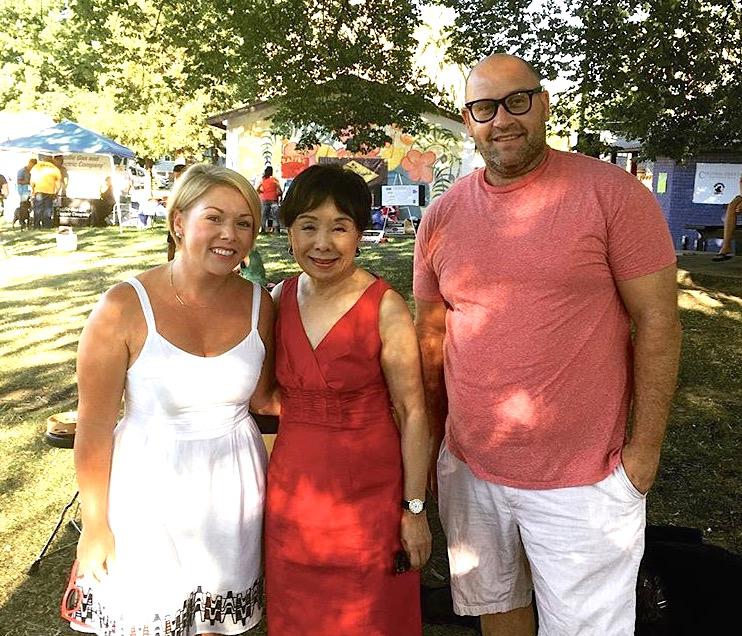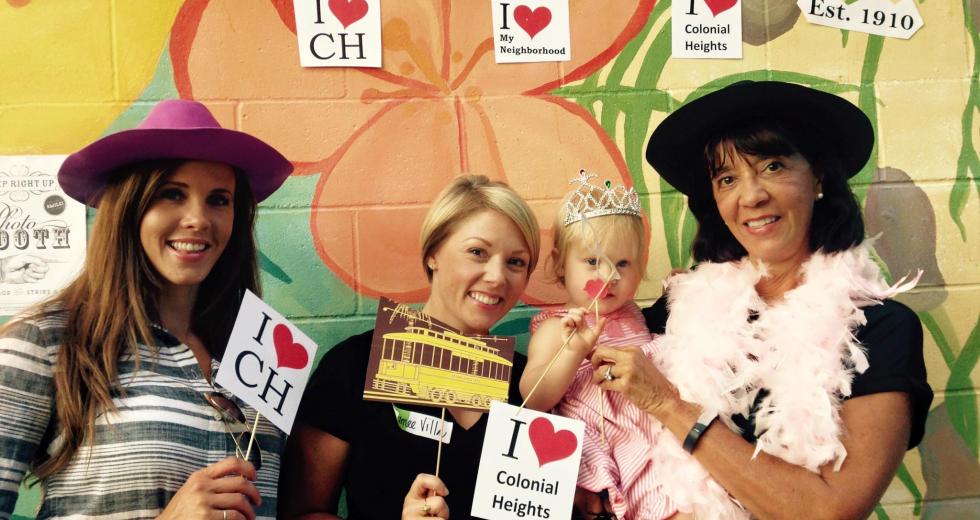My husband and I bought our first home in spring 2015. We moved into an up-and-coming area in Sacramento that wasn’t at the top of our price point. We did all the necessary research beforehand — checked out crime watch and Megan’s Law websites, drove by at different times of the day and, of course, chatted with the neighbors.
To be honest, the neighbors really sealed the deal for us. We were moving into a neighborhood with a highly active and energized neighborhood association. We signed the last piece of paperwork and immediately jumped into all things neighborly, and that included joining our neighborhood association. If you think these associations aren’t for you, or you are unsure on how you can contribute to your own neighborhood, I urge you to think about the following:
1. Good Neighbors Equal Good Neighborhoods
When you gather a group of people interested in bettering their neighborhood, I am pretty confident good things will come your way. While most neighbors are interested in preventing crime, some are interested in clean public bathrooms or more street lighting. All of these personal agendas make for a diverse to-do list. When it becomes personal, the vested interest grows stronger within the group.
“The neighborhood [association] is that ‘just right’ level of engagement — large enough to take me outside of my individual concerns but small enough to really get to know people and tackle issues head on,” says Oak Park Neighborhood Association member Sam Greenlees.
When you decide what to focus on and push up your sleeves, things start happening. Let me tell you, this type of work is not for the light-hearted: Roadblocks can sway your focus. For me, I expected to have more movement with decisions and changes. However, good neighborhoods take time to grow. There are no overnight successes, and at times, it seems easy to give up. When these feelings begin to invade your space, resort back to why you wanted to join in the first place. This is your home, this is where you have invested your hard-earned money, blood, sweat and probably tears. It is worth it.
2. Become a Decision Maker
When you join a neighborhood association, you may also have the opportunity to join the leaders’ group or better yet a place on the board. By taking a leadership role, you have the power to discuss issues and create improvements.
Katie Valenzuela Garcia is a board member for the very active Oak Park Neighborhood Association. “I’m on the board for OPNA because I think it’s important for residents to work together to speak up for themselves,” she says. “Neighborhood associations haven’t historically been places that are super inclusive or proactive, but we’re working to change that through active canvassing and other communications, as well as our participation in the Sacramento Neighborhood Coalition.”
A neighborhood association is also a direct line to your city council members and other elected officials. You have the privilege of meeting other neighborhood leaders as well. Collaborating on issues or events can be a great bridge for your community. Over time, this will make you well-versed in the processes of regulations and city-wide laws, which can be incredibly invaluable skills in civic work.
From left: Jamee Villa, Congresswoman Doris Matsui and Cam Villa
at a neighborhood event. (photo courtesy of Jamee Villa)

3. Gain Leadership Skills
The skills you learn as a member of a neighborhood association are worthy of adding to your résumé. And, most importantly, they may help you become a better employee and citizen. When working with a passionate group of people, you are not just adding “works well with others” on your LinkedIn. You are saying, “I am passionate about this cause.” You might also hone skills you never learned about in previous jobs or in college. When was the last time you manned a booth at an event? Led a neighborhood cleanup? Asked for donations? There is no shame in showcasing your skills and picking up some new ones — the work day doesn’t always end at 5 p.m.
4. Get to Know Your Neighbors
You don’t get to choose who is in your neighborhood association — I like that. Gathering a group of people from different backgrounds with a wide range of experience brings so much to the table. There is no social or economic exclusivity, and you’re likely not sitting in a group with your friends or colleagues — though they may become that over time.
“A neighborhood is a place where you will run into people again and again just by being outside, running errands and enjoying a cup of coffee,” Greenlee says. Now, you may not always get along, but you are more than forced friends, you are neighbors who have the same common goal. Respect that and determine what you can take away from this group of engaged neighbors.
5. Have Fun
Don’t really want to attend a meeting? There is something for you as well: a good time! Show up to neighborhood events. Meet new people, eat a few tasty treats and go home. All with minimal planning required. Josh Bartholomew, a leader in the Colonial Heights Neighborhood Association, loves attending the events organized by the association in the tiny-but-mighty Colonial Heights Park during the summer months.
“Attending those events are great for meeting neighbors and feeling more connected to the place I live,” Bartholomew says. One of those events is National Night Out, which is a community celebration and usually includes bands, food, bounce houses for kids. It also promotes a partnership between the neighborhood and local police officers. Other events may include Easter egg hunts, Fourth of July block parties and other holiday gatherings.
Currently, I am a leader in the Colonial Heights Neighborhood Association, and I really enjoy it, but it hasn’t been easy. There have been many highs followed by many lows. As a working mother and wife, I choose how I spend my time wisely, however, I believe that working into the evenings and weekends for my neighbors is worth it.




Comments
I've been wondering if there is a way to have an outside source (one that doesn't live in our development) to help manage our neighborhood-voluntary association.
Currently, I am on the board of trustees for that association. We celebrated our 60th year in 2017.
We too have ups and downs.... for various reasons.
Currently, we, as a board are "exhausted" as we have troublesome times coaxing residents to join, both the association and getting new faces on the board (some of us have been on for 20plus years.... which we know isn't right).
Because we lack the time/skills, to correctly run our association, I fear it will soon (as in when 2018 gets here) become defunct, which will be a sad day for those, here, who wish to keep it alive.... but don't have the ability too run it.
If you have any advice.... I would greatly appreciate it.
Thank You, Paula